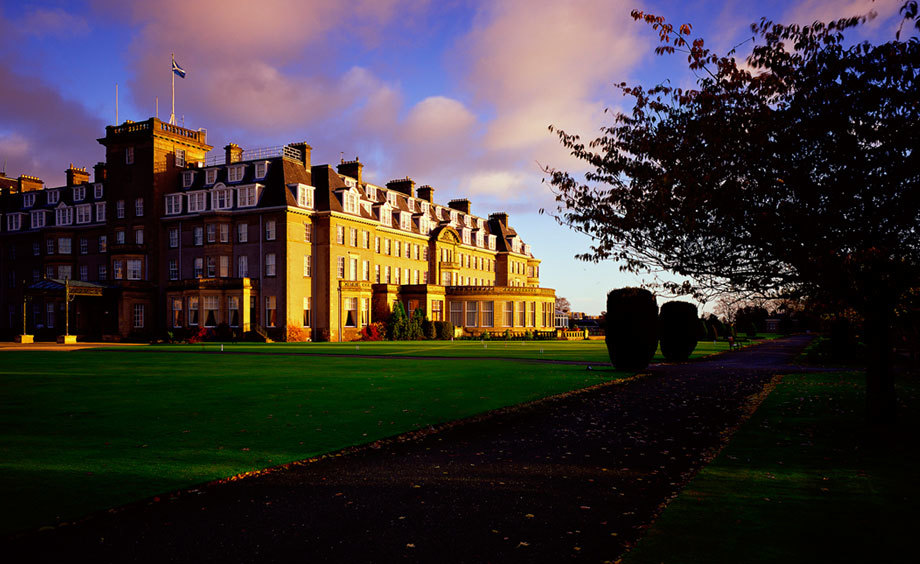The sale of the Gleneagles Hotel in Perthshire helped send profits at the world’s largest spirits maker on an upward trajectory following two years of decline.
Diageo, whose whisky brands include global market leader Johnnie Walker, Bell’s, Buchanan’s and J&B, agreed to offload its jewel-in-the-crown hotel to Ennismore founder Sharan Pasricha earlier this month.
The London-based firm has not disclosed the amount paid for the hotel, which hosted the Ryder Cup in September, but yesterday said the sale had resulted in an exceptional gain, or profit, of £73million.
In the year to June 30, the “iconic” hotel brought in net sales of £48million and an operating profit of £4million.
The year also saw Diageo swap the Bushmills Distillery for the Don Julio tequila brand, previously owned by Mexico’s Casa Cuervo.
Organic net sales growth at the group, which also makes Guinness stout, Baileys liqueur, Captain Morgan rum, Smirnoff vodka and Tanqueray gin, was flat for 2014-15, as was the case a year before.
Analysts had predicted growth of 0.2%.
The group’s pre-tax profits rose 8% to £2.9billion on the back of net sales of £10.8billion.
But in North America, Diageo’s biggest profit earner, net sales were down 1% and volume fell 3% as market leaders like Smirnoff and Captain Morgan are facing stiff competition, while its business in emerging markets also struggled.
North American net sales of the firm’s flagship whisky brand, Johnnie Walker, dropped 15% due to cutbacks in promotional activities and the launch of extensions such as its premium Johnnie Walker Platinum.
In an effort to turn the tide, Diageo is shifting its focus away from what it sells to wholesalers towards what is actually sold to retailers.
The measure, known in the industry as depletions, more closely reflects consumer demand and lets the company be more efficient and agile.
Earlier this month, the company confirmed it is the subject of a US probe into allegations that it tried to artificially boost sales figures by shipping excess inventory to US distributors, also known as channel stuffing.
Diageo has said it is responding to the SEC’s questions.
Diageo chief executive Ivan Menezes said the 2014-15 figures reflected the challenges the firm has seen on top line growth, but predicted that performance will pick up next year.
However, the company will have to wait until 2017 for organic top line growth to reach mid-single digits, Mr Menezes said.
RBC Capital Markets analyst James Edwardes Jones said the guidance is “notably upbeat,” adding: “Given Diageo’s recent performance, we remain to be convinced as to the achievability of this guidance.”
